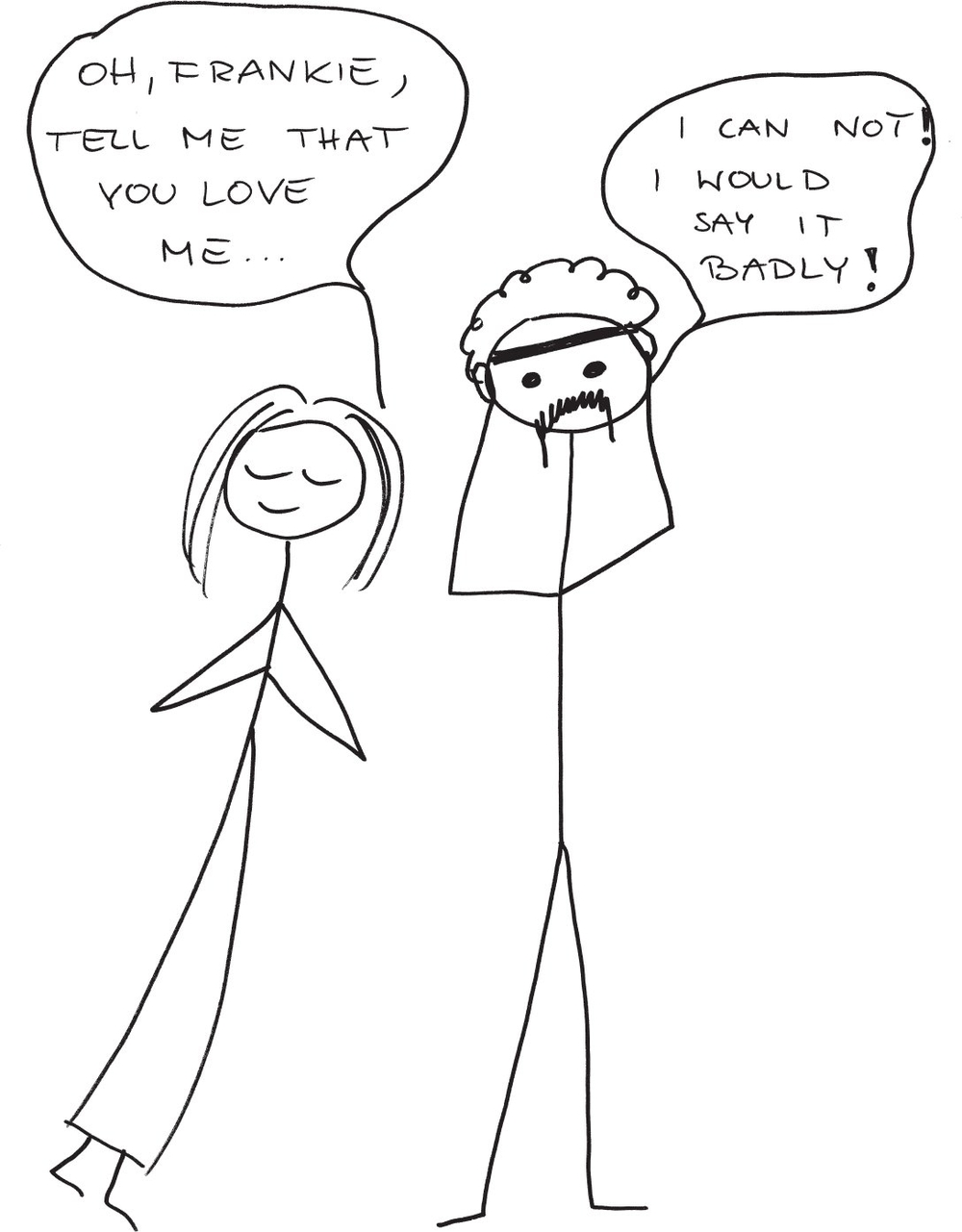It’s fair to say that a rogue stammer has retarded my development as a normal functioning human being. I originally didn’t want to dwell on it too much in this book, but now that we’re at the final chapter, I thought it could be a nice way of eliciting sympathy. The fact is, there are times when I simply don’t bother speaking. And I rarely tell stories. You’ve all heard of a bad liar? Well, I’m bad at telling the truth.
Someone told me that if you try to do something that you don’t want to do then the brain gets muddled up and might stop doing it. So I’ve even consciously tried to stammer, and on good days this reverse psychology works a treat. But on bad days, all I get is: ‘Why are you pretending to stammer?’
My worried mum put me in for a test with a speech therapist at primary school and, out of sheer bloody-mindedness, I enunciated perfectly. The expectation of the therapist must have galvanised something in me – a deep-rooted desire to prove people wrong.

My all-time low in this respect came when I heard of British Telecom’s plans to reduce the phone bill charges of those afflicted with speech impediments – to compensate for the endless agonising conversations. My own impediment dramatically deteriorated overnight, and I wasn’t the only one sniffing a great opportunity to slash phone bills (‘phone bliss’) and save money; apparently there was a stampede of applications throughout Scotland as, out of nowhere, a stuttering epidemic swept the nation like bush-fire. That meant BT had to withdraw the offer. Someone’s always out to spoil a stuttering Scot’s fun.
I worry that this nervous stammer will never go away. It’s an impediment that betrays uncertainty, a thought process like Spaghetti Junction and perhaps even an unhealthy dose of self-importance – after all, why would you stumble over those words if you didn’t think they held some kind of precious value?
But why can’t we celebrate our mistakes in the end? Perhaps mistakes have just as much right to be celebrated as deeds that feed our pride. The flaunting of our faults helps others feel better about them-selves. And I have learned that telling the truth in a clumsy way makes it seem somehow more authentic. It’s natural and real, therefore it’s true. The action of telling the truth becomes true in itself. And if you don’t believe me, then you can just g-g-go and f-f-fu-fuck off.